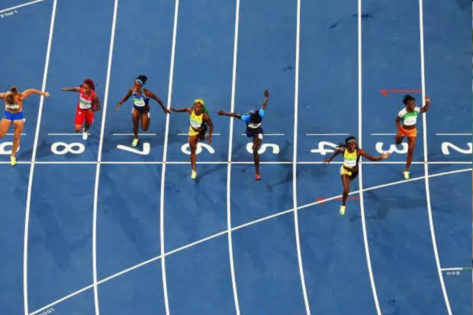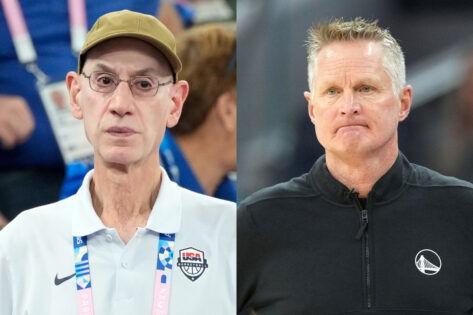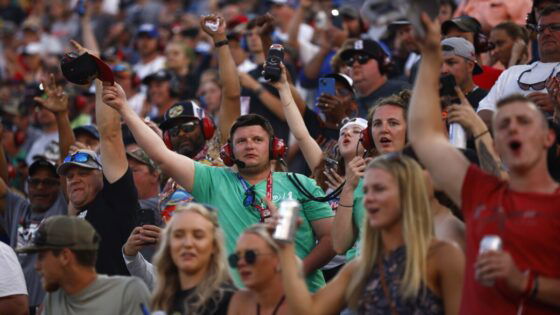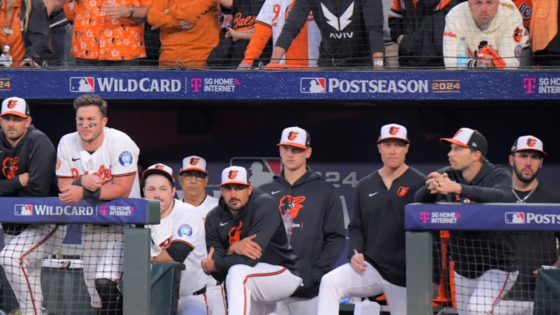Grand Slam Track isn’t just about competition—it’s about showcasing the athletes’ journeys. The league’s launching with four big events, or “Slams,” spread across some pretty cool cities. Each Slam is a three-day showdown where athletes compete twice in their event groups, racking up points to crown a champ. And the prize money? The total prize pool of a whopping $12.6 million is enough to make every participating athlete give their best. Does the life of an athlete sound too good to be true? Well, that is probably because it is. Behind all this glory lies a dark reality in sport that demands everything, not just from the ones on the track, but everyone around them.
In a
recent sit-down with Joshua Potts at the FloTrack studio, Morolake Akinosun, Head of Athlete Relations, Grand Slam Track, peeled back the layers of what it takes to compete at the highest level as the brand new league is all set to redefine the world of track. Her words hit hard: “I
think people don’t see the hidden sacrifices that happen all the time for not just professional track athletes but all professional athletes in general.”Akinosun’s words probably come from personal experiences, because she has only retired from track in 2024. Morolake Akinosun has represented the US at renowned events, including the Pan American Games, the World Championships, and the Rio Olympics. The most significant high point of her career was the gold medal won in the 4x100m relay during the Olympics of 2016. The retired track star went on to highlight the hidden costs of the spotlight in the track fraternity.
“So everyone thinks of you have to eat healthy, you have to work out all the time, you have to, you know, like everyone knows those sacrifices,” Akinosun explained. Her insight comes at a pivotal moment for track and field. The Grand Slam Track League, kicking off its inaugural season, is shaking things up with a star-studded lineup and a fresh approach to the sport. For example, many Olympic medal winners have floundered after retirement, some even ending up experiencing financial struggles or fighting mental health issues due to being unable to adapt to life outside of sports. The Grand Slam Track emphasizes the necessity for improved preparation and better financial support for athletes.
Adding further she says, “What they don’t see is the missed family events, the missed holidays, the missed dinners, the missed hang out with friends, then I have to go to sleep instead of coming over.” And here’s the kicker: it’s not just the athletes who pay the price. “There is a sacrifice that not just the professional athlete has to make, but all of their friends, all of their families, all of their loved ones also have to make in order for one person to be great,” she added. According to FloTrack, the league’s Kingston Slam event, set to feature top-tier talent like Sydney McLaughlin-Levrone and promises to bring new energy to the track.
But even with the glitz of a new league, Akinosun’s words remind us that the grind never stops. The Olympics website highlights that Grand Slam Track isn’t just about competition—it’s about showcasing the athletes’ journeys. And those journeys? They’re paved with sacrifices most of us never see. For every medal, there’s a missed call from mom. For every record broken, there’s a holiday spent in a hotel room instead of at home.
When Sekou Clarke and Gabby Thomas exposed the dark realities of Track and Field
Track and field might look like all speed, strength, and shiny medals from the outside, but dig a little deeper, and you’ll find some shadows lurking beneath the surface. Two voices—Sekou Clarke, a seasoned veteran of the sport, and Gabby Thomas, an Olympic standout—have recently pulled back the curtain on the darker side of this world. Their stories aren’t just personal gripes; they’re a wake-up call about the struggles athletes face that don’t make it to the highlight reels.
Sekou Clarke’s been around the block—or rather, the track—for years. He’s seen the highs, the lows, and everything in between. But what’s got him speaking out now? It’s the way the sport chews up talent and spits it out without a second thought. Clarke’s talked about how the grind wears you down—not just physically, but emotionally. The constant pressure to perform, the lack of support when injuries hit, and the way promising careers can fizzle out due to things beyond an athlete’s control, like funding or politics. On his appearance on the ‘Ready Set Go’ podcast, Clarke made a heartfelt confession, “It pains me when I see an athlete who was a medalist, someone doing extremely well, and post-track life isn’t anywhere close to what you would expect”. According to him, the system often fails those who’ve poured their lives into it. His words hit hard because they come from experience, not speculation.
Then there’s Gabby Thomas,
a name you probably know from her blazing sprints and her inspiring 200m win in Paris. But even someone at her level isn’t immune to the sport’s harsh edges—especially as a woman. Thomas has opened up about feeling “
heartbroken and devastated” by the realities female athletes face. It’s not just about running fast; it’s the unequal treatment, the scrutiny, and the way women’s achievements can get overshadowed or undervalued.
She’s teamed up with a Paralympic champ, Scout Bassett, triggering a conversation during Women’s History Month, about how the track world can be a tougher race for women, with barriers that go way beyond the starting line. According to a Women’s Health report, Thomas found out that at the collegiate level, men receive $252 million more in athletic financial aid and 60,000 additional sports opportunities compared to women. Track and field’s got soul, but it’s also got scars. Maybe it’s time we all paid attention to what’s happening off the track, too.
The post ‘People Don’t See the Sacrifices’: Olympic Gold Medalist Showcases Track and Field Reality Often Missed by Fans appeared first on EssentiallySports.



